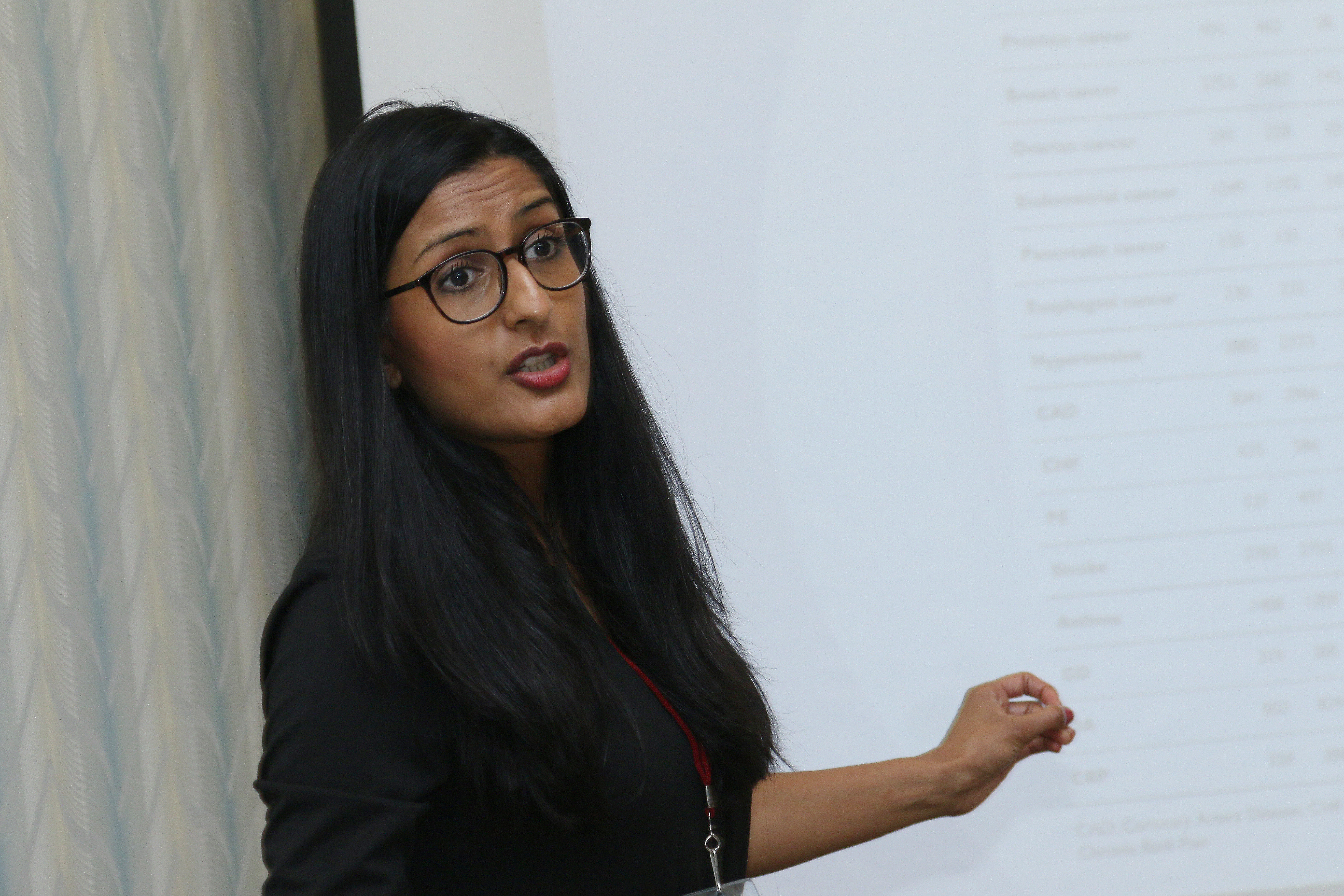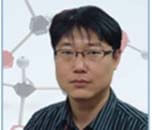Sessions
Advances in Food Processing and Preservation Technologies
Innovations in food processing and preservation are transforming the way we produce, store, and consume food. This session explores cutting-edge technologies designed to enhance food safety, quality, and shelf life while minimizing environmental impact. Topics will include non-thermal methods such as high-pressure processing, cold plasma, and pulsed electric fields, as well as biopreservation and enzyme-based solutions. Experts will discuss how these methods retain nutrients, improve texture, and reduce waste throughout the supply chain. Emphasis will also be placed on the integration of automation and smart monitoring systems for optimized production. Attendees will gain insights into scaling advanced preservation technologies from laboratory research to commercial applications, aligning innovation with sustainability. This session aims to bridge the gap between scientific discovery and industrial practice, offering a comprehensive overview of next-generation processing solutions that are shaping the future of global food systems.
Food Chemistry, Structure, and Functional Properties
Understanding the chemistry and structure of food is essential to improving its sensory, nutritional, and functional qualities. This session focuses on the molecular interactions between carbohydrates, proteins, lipids, and bioactive compounds, and how these influence food texture, flavor, and stability. Experts will explore the impact of processing, formulation, and storage on food structure and functionality. Discussions will include advanced analytical methods such as spectroscopy, rheology, and microscopy to assess and design food materials. The session will also address innovations in food formulation aimed at clean-label products and improved health benefits. Participants will learn how manipulating food chemistry at the molecular level leads to superior products that meet consumer demands for both nutrition and quality. This session provides a platform for researchers and industry professionals to share insights into creating functional and sustainable food systems through scientific understanding and technological advancement.
Food Safety, Quality Control, and Risk Assessment
Ensuring food safety and maintaining quality standards are critical challenges in the modern food industry. This session will examine advanced approaches to identifying, evaluating, and managing foodborne risks. Topics will include microbiological and chemical hazard detection, allergen management, and predictive modeling for contamination control. Experts will discuss innovative technologies such as rapid detection tools, biosensors, and blockchain-based traceability systems that enhance transparency and accountability. The session will also address compliance with global food safety regulations and certification frameworks. Emphasis will be placed on integrating scientific evidence and digital technologies into effective risk assessment and management strategies. Attendees will gain practical insights into improving food safety assurance systems and strengthening consumer trust in global food supply chains. This track serves as an essential platform for food technologists, regulators, and quality managers committed to maintaining excellence and safety in food production.
Novel Food Packaging: Sustainable and Smart Solutions
As sustainability becomes central to food innovation, packaging is evolving beyond containment into a multifunctional component of the food ecosystem. This session will explore the latest advancements in eco-friendly, active, and intelligent packaging solutions that extend shelf life and improve food quality. Topics include biodegradable films, nanocomposite materials, and smart packaging technologies integrated with sensors to monitor freshness, temperature, and contamination. Experts will highlight circular economy principles, material recovery systems, and policy initiatives promoting environmental responsibility. The session will also examine the balance between functionality, cost, and sustainability in large-scale packaging operations. Attendees will discover how innovation in materials science and digital technologies can reduce waste and enhance supply chain efficiency. This discussion provides valuable insights for industry leaders, researchers, and sustainability advocates dedicated to building a greener and more transparent future for food packaging.
Food Biotechnology and Genetic Engineering Applications
This session explores the revolutionary role of biotechnology and genetic engineering in shaping the future of global food production. Experts will discuss the use of molecular tools such as CRISPR-Cas9, genome editing, and synthetic biology to improve crop yields, enhance nutritional content, and develop disease-resistant varieties. Topics will include microbial fermentation, enzyme engineering, and biofortification techniques that drive innovation in food and beverage manufacturing. The session will also address regulatory considerations, ethical implications, and consumer perspectives on genetically engineered foods. Attendees will learn how biotechnology contributes to sustainable agriculture, resource efficiency, and climate resilience. By integrating science, technology, and policy, this session provides a comprehensive understanding of how biotechnology is unlocking new possibilities in food innovation and security. It offers a forward-looking perspective on how genetic engineering can meet global nutrition demands responsibly and effectively.
Human Nutrition and Dietetics: From Nutrients to Health Outcomes
Nutrition science continues to play a pivotal role in promoting health and preventing disease. This session explores the connection between nutrients, dietary patterns, and overall health outcomes. Experts will present evidence-based research on macronutrient and micronutrient metabolism, dietary interventions, and nutrition across the lifespan. The discussion will highlight advancements in clinical dietetics, nutritional assessment methods, and personalized nutrition approaches. Participants will gain insights into how social, cultural, and behavioral factors influence dietary habits and health outcomes. The session will also examine the role of nutrition professionals in promoting public health through education, counseling, and policy development. Attendees will leave with a comprehensive understanding of how science-based nutrition strategies can be effectively translated into real-world dietary recommendations to enhance well-being and reduce the burden of chronic diseases.
Functional Foods, Nutraceuticals, and Bioactive Compounds
Functional foods and nutraceuticals represent a fast-growing sector in health-oriented innovation. This session focuses on identifying, characterizing, and applying bioactive compounds derived from plants, marine sources, and microorganisms to promote health and disease prevention. Experts will discuss advancements in formulation technologies, bioavailability enhancement, and clinical validation of functional food ingredients. The session will also explore regulatory frameworks and consumer acceptance challenges within the global nutraceutical market. Attendees will gain insights into the latest research on antioxidants, polyphenols, probiotics, and omega-3 fatty acids and their roles in supporting metabolic and immune health. The discussion emphasizes the integration of scientific discovery with product development and commercialization strategies. This session provides a platform for researchers, nutritionists, and industry professionals to collaborate on creating innovative functional foods that align with modern health and wellness demands.
Clinical and Public Health Nutrition: Addressing Global Challenges
Clinical and public health nutrition are at the forefront of addressing the global burden of malnutrition, obesity, and diet-related chronic diseases. This session focuses on evidence-based strategies to improve nutritional status at both individual and population levels. Experts will explore topics such as nutritional epidemiology, dietary interventions for non-communicable diseases, and innovative community-based programs targeting vulnerable populations. Special emphasis will be placed on global nutrition policies, food fortification, and sustainable dietary guidelines that promote equitable access to healthy food. Discussions will also cover the integration of nutrition into healthcare systems, emphasizing the collaboration between clinicians, dietitians, and policymakers. Attendees will gain valuable insights into the role of nutrition in preventive healthcare and sustainable development. This session provides a vital platform for researchers, practitioners, and organizations working toward achieving global nutrition security and reducing health disparities through scientific and policy-driven approaches.
Precision Nutrition and Personalized Diets through Genomics
Advancements in genomics and molecular biology are revolutionizing how we approach nutrition and health. This session will explore the emerging field of precision nutrition, which tailors dietary recommendations to an individual’s genetic, metabolic, and microbiome profiles. Experts will discuss how genomic variations influence nutrient metabolism, disease risk, and dietary responses. Topics will include nutrigenomics, metabolomics, and the use of digital health tools to monitor personalized dietary interventions. The session will also highlight ethical and regulatory considerations in implementing personalized nutrition at a population level. Attendees will learn about the latest research and technological tools driving the shift from generalized dietary guidelines to individualized nutrition plans. By integrating science, technology, and healthcare, precision nutrition offers a transformative approach to optimizing health, preventing disease, and promoting longevity through personalized dietary solutions.
Food and Gut Microbiome: Impacts on Metabolism and Immunity
The gut microbiome plays a crucial role in human health, influencing digestion, metabolism, and immune function. This session will explore the intricate relationship between diet, gut microbiota, and host physiology. Experts will present current research on how specific nutrients, prebiotics, probiotics, and fermented foods modulate the gut ecosystem to improve metabolic and immune outcomes. Topics will also cover emerging technologies in microbiome profiling, the role of the gut-brain axis, and the therapeutic potential of microbiota-targeted interventions. Discussions will highlight the integration of microbiome science into clinical nutrition and functional food development. Attendees will gain insights into how personalized nutrition strategies can harness the microbiome to promote health and prevent disease. This session provides a comprehensive overview of cutting-edge research and applications in the dynamic field of food and microbiome interactions.
Artificial Intelligence and Data Science in Food Research
Artificial Intelligence (AI) and data science are transforming every aspect of food science, from production to consumption. This session focuses on how AI-driven analytics, machine learning, and big data applications are enhancing food research and innovation. Experts will discuss predictive modeling for food quality, intelligent process optimization, and AI-based solutions for food safety and supply chain management. Topics will also include sensory data analysis, consumer preference prediction, and sustainability optimization using advanced algorithms. The session emphasizes how data-driven technologies enable smarter decision-making, reduce waste, and accelerate product development. Attendees will discover real-world case studies demonstrating how AI is revolutionizing R&D and market responsiveness in the food industry. This session aims to bridge the gap between data science and food innovation, empowering researchers and industry professionals to adopt intelligent tools for sustainable food system transformation.
3D Food Printing and Future Food Engineering
3D food printing is redefining food design, manufacturing, and personalization. This session explores how additive manufacturing technologies are being applied to create customized, nutritious, and sustainable food products. Experts will discuss the principles of 3D food printing, material science behind printable ingredients, and innovations in texture, flavor, and nutrient delivery. The session will also highlight applications in healthcare nutrition, space food, and culinary creativity. Attendees will gain insights into the integration of digital design, robotics, and food engineering to revolutionize production efficiency and customization. Key challenges such as scalability, cost, and consumer acceptance will also be addressed. This session provides a futuristic perspective on how 3D printing is transforming the global food industry, combining technology and creativity to produce foods that meet specific dietary and aesthetic preferences.
Sustainable Food Production: From Alternative Proteins to Zero Waste
Sustainability is a defining challenge and opportunity for the global food industry. This session will explore innovative solutions that promote resource efficiency, environmental stewardship, and circular food systems. Experts will discuss topics such as plant-based and cultured proteins, renewable energy in food processing, and waste valorization strategies. The session will also cover sustainable agriculture practices, food loss reduction, and policy frameworks that support greener food production. Attendees will learn about the latest research and technologies driving the shift toward sustainable food ecosystems, including upcycling, bioconversion, and carbon footprint reduction. The discussion emphasizes collaboration between academia, industry, and government to achieve global sustainability goals. This session inspires actionable strategies to balance productivity, profitability, and environmental responsibility in modern food systems.
Nanotechnology in Food Science and Nutrition
Nanotechnology offers groundbreaking possibilities in food innovation, safety, and nutrition enhancement. This session delves into the application of nanomaterials in food packaging, preservation, and nutrient delivery. Experts will present advancements in nanoencapsulation for improved bioavailability of nutrients and flavor compounds, as well as nanosensors for real-time food quality monitoring. The session will also address regulatory and safety concerns associated with nanotechnology applications in the food industry. Participants will gain insights into how nanoscale science is enhancing texture, stability, and functionality in food systems while reducing waste and contamination risks. By integrating materials science with nutrition and food engineering, nanotechnology is unlocking new frontiers in quality and efficiency. This session provides a comprehensive understanding of how nanoinnovations are shaping the future of safe, sustainable, and functional foods.
Food Supply Chain Innovation and Blockchain for Food Traceability
Transparency and traceability have become vital in ensuring food safety and consumer trust. This session focuses on innovative supply chain solutions powered by blockchain, IoT, and digital technologies. Experts will explore how decentralized systems enhance data integrity, trace product origins, and streamline logistics across global food networks. Topics will include supply chain digitization, sustainability tracking, and real-time monitoring of food quality and safety parameters. The session will also discuss collaborative models that connect producers, processors, and retailers for greater accountability. Attendees will discover case studies showcasing blockchain’s role in preventing fraud, improving recall efficiency, and ensuring compliance with international standards. This session offers a forward-thinking approach to building resilient, transparent, and technology-driven food systems that meet the evolving expectations of consumers and regulators worldwide.
Market Analysis
Food Science, Nutrition, and Technology form the foundation of modern advancements that sustain global health, ensure food security, and drive innovation across industries. As the global population continues to rise, the need for safe, nutritious, and sustainable food has never been greater. This interdisciplinary field brings together scientists, technologists, nutritionists, and policymakers to address complex challenges—ranging from food quality and safety to the development of functional and sustainable products that enhance human well-being. At its core, Food Science focuses on understanding the physical, chemical, and biological properties of food. Researchers are continuously exploring novel processing and preservation techniques to retain nutrients, extend shelf life, and improve sensory attributes without compromising safety. Advanced technologies such as high-pressure processing, nanotechnology, and biotechnology are revolutionizing food manufacturing, enabling the development of innovative, sustainable, and efficient production systems. These breakthroughs ensure that food remains safe and accessible while meeting consumer expectations for transparency, convenience, and environmental responsibility.
Nutrition Science, meanwhile, provides critical insights into the role of nutrients and dietary patterns in promoting health and preventing disease. It bridges molecular biology, biochemistry, and clinical research to understand how nutrients interact with the human body. Emerging disciplines such as precision nutrition, nutrigenomics, and microbiome research are paving the way for personalized dietary strategies tailored to individual genetic profiles and metabolic needs. By integrating data-driven insights and evidence-based recommendations, nutrition science is transforming healthcare and promoting global well-being across diverse populations. Technological innovation has become the driving force behind the evolution of the food and nutrition sectors. Artificial Intelligence (AI), data analytics, and machine learning are being applied to predict consumer behavior, optimize food production, and enhance supply chain transparency. Meanwhile, 3D food printing, blockchain technology, and smart packaging are redefining how food is designed, produced, and delivered. These advancements not only improve efficiency and traceability but also promote sustainability by reducing waste and environmental impact. Sustainability remains a central theme in the modern food ecosystem. Scientists and industries are increasingly focusing on alternative proteins, plant-based foods, and circular production systems that minimize waste and maximize resource utilization. Efforts to reduce carbon footprints, recycle food by-products, and adopt renewable energy sources are shaping a greener, more responsible future for food production. Collaborative research among academia, industry, and policymakers is essential to align technological progress with public health goals and environmental stewardship.
Ultimately, Food Science, Nutrition, and Technology represent the convergence of innovation, research, and responsibility. The integration of these disciplines is essential for addressing pressing global challenges such as malnutrition, food insecurity, and climate change. By harnessing scientific discovery, technological innovation, and policy collaboration, the global food community is paving the way toward a sustainable and health-driven future.








